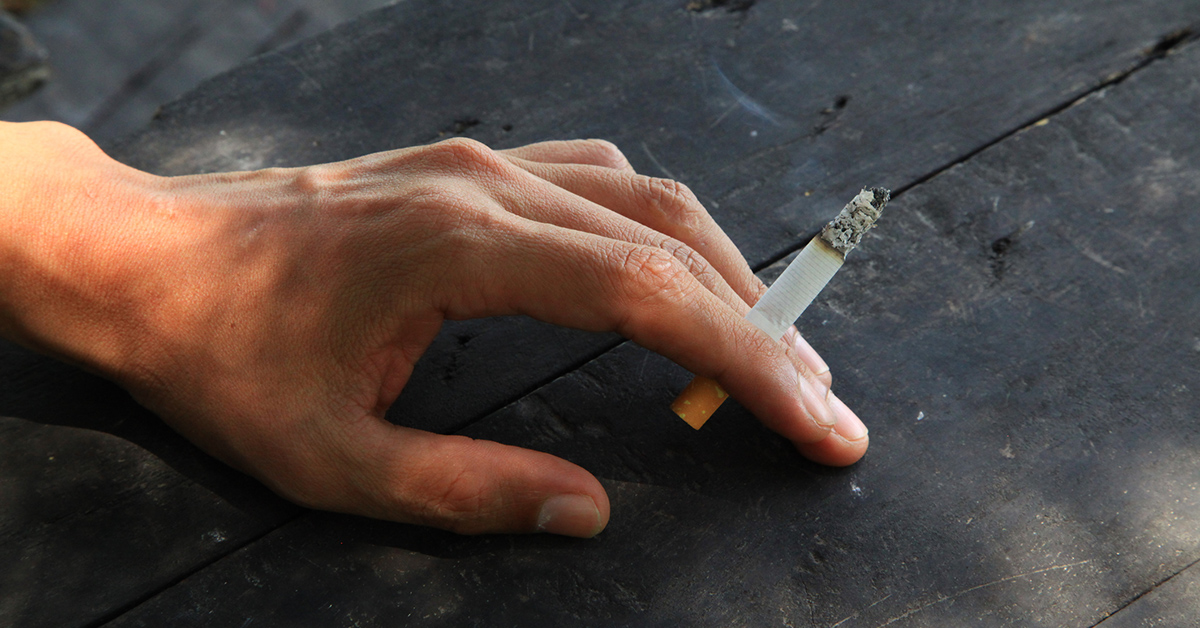
What Every Current or Former Smoker Should Know About Lung Cancer
-
Updated: April 8, 2022
It’s not news that smoking is by far the biggest cause of lung cancer. And the more someone smokes, the greater their risk of lung cancer.
But this fact about smoking may surprise you: “Even light smoking raises your risk of lung cancer,” said Martin Edelman, MD, chair of the Department of Hematology/Oncology at Fox Chase Cancer Center. In fact, smoking even one cigarette a day raises the risk of dying from lung cancer, research shows.
“There is simply no safe level of exposure to tobacco,” Edelman said. “It’s filled with substances that damage cells, particularly the DNA in cells. And the accumulated mutations and abnormalities in cells ultimately can cause lung cancer.”
That means smoking any tobacco product—whether it’s a menthol cigarette, a hand-rolled bidi, a cigar, or in a pipe—makes you vulnerable to lung cancer.
Quitting is always protective
It’s crucial to stop lighting up even if you only smoke lightly or occasionally. The sooner you quit, the lower your risk of lung cancer, as well as many other smoking-related diseases that can take years off your life.
“It’s always best to stop smoking, and it’s never too late to quit,” Edelman said. “That's true even if you already have lung cancer.” Quitting can help make treatment for the disease more effective, and it can reduce some complications.
Act on symptoms
As beneficial as quitting is, your risk of lung cancer may never completely go away if you’ve ever smoked, Edelman said.
So, if you’re a patient who formerly smoked—even a longtime one—tell your doctor right away if you have any of these possible warning signs and symptoms of lung cancer:
- A cough that doesn’t go away or gets worse over time
- Chest pain that is worse with deep breathing or laughing
- Shortness of breath, hoarseness, or new wheezing
- Repeat bouts of bronchitis or pneumonia
- Loss of appetite or unexpected weight loss
- Coughing up blood or rust-colored phlegm
Should you be screened for lung cancer?
Doctors can use low-dose CT scanning to find lung cancer in its earliest, most easily treatable stages. Routine screening is recommended for most patients who formerly or currently smoke. It has drawbacks, mainly the risk of false alarms that might result in invasive follow-up testing, such as a biopsy.
Still, if you’re a longtime patient who smokes or formerly smoked, ask your doctor if screening is right for you. According to the American Cancer Society (ACS), you may be a candidate if you meet all these criteria:
- You are between the ages of 50 and 80
- You have a history of more than 20 pack-years of smoking (the number of years smoked multiplied by the average number of packs smoked per day)
- You are currently smoking or have quit smoking within the last 15 years
Schedule a lung cancer screening.
Call 888-369-2427 or request online.
If you do opt for CT screening, the ACS recommends that you have it done at a medical center with special expertise in lung cancer screening and treatment.
Finally, don’t lose sight of this: “Screening is never a substitute for stopping smoking,” Edelman emphasized. The most effective way to protect yourself from lung cancer is to stay away from tobacco.
Learn more about Fox Chase Cancer Center’s Tobacco Treatment Program
